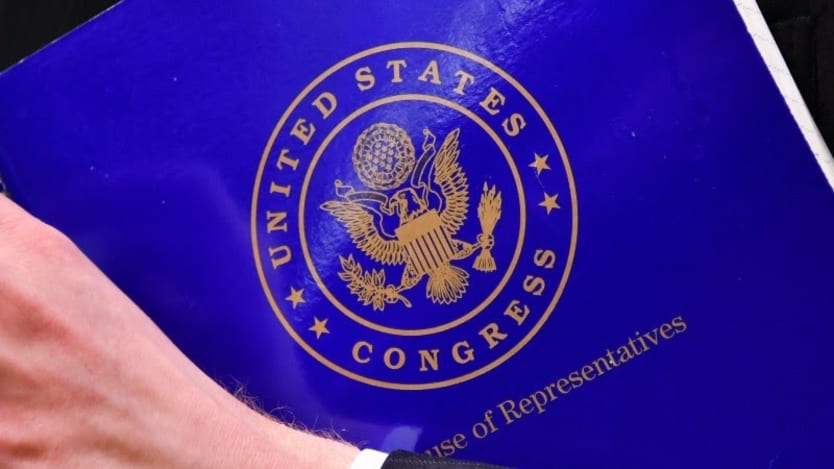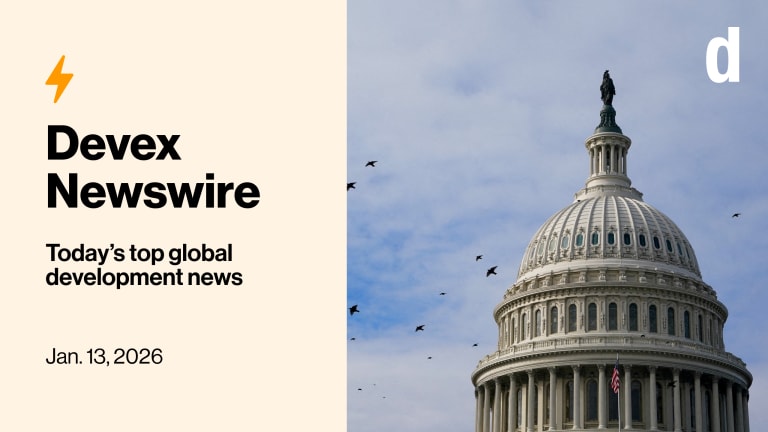What the US Congress might do next in funding global COVID-19 response

WASHINGTON — The U.S. Senate is expected to begin discussions on the next COVID-19 supplemental funding bill next week, and global health and development advocates are pushing for lawmakers to include billions of dollars for the global response.
House boosts foreign aid funding, adds $10B for COVID-19 response
The U.S. House of Representatives appropriations committee has released its annual funding bill for fiscal year 2021. Here's a breakdown of where funds are going and the details of the COVID-19 response funding that's included.
While the House of Representatives in May passed the $3 trillion HEROES Act, which included no funding for the global response, advocates say they are hopeful that the Senate, which has waited until now to work on its version of the next emergency funding bill, will include some.
Thus far, only about 0.1% of total U.S. COVID-19 funding has gone to the global response and the “U.S. can and should do more,” said Porter Delaney, founding partner of the Kyle House Group consulting firm, at a press conference Monday.
That global funding is critical not only for the world’s poorest countries, but also for responding to the disease domestically, said Tom Hart, the North America executive director of the ONE Campaign.
“If we want to move quickly and at scale, now is really the only option to prevent further spread and reduce humanitarian and economic impact.”
— David Cronin, government affairs specialist, Catholic Relief Services“I don’t think I can overstate how important it is that the domestic response will not work if there is not at least some global response,” he told Devex.
There appears to be growing momentum in the Senate to include global funding in the supplemental appropriations package lawmakers hope to pass before the end of the month.
On Thursday, a bipartisan group of 33 senators sent a letter to Senate Majority Leader Mitch McConnell and Minority Leader Chuck Schumer, saying they “strongly support significant U.S. investment in the international response.” The letter went on to say that Americans agree that the U.S. “must” lead in the pandemic’s global response and that the signatories look forward to working with Senate leadership to make sure the “next phase of emergency funding to address COVID-19 includes a robust, coordinated, and sufficiently resourced international response.”
The importance of the letter cannot be “understated” and is an “incredibly important symbol of bipartisan support,” especially with key leaders such as Sen. James Risch — the Republican chairman of the Senate Foreign Relations Committee — signing on, said David Cronin, a government affairs specialist for Catholic Relief Services.
Some advocates are a bit more ambivalent. “There still seems to be this missing link when it comes to how convinced they are or how motivated they are to truly invest in the response and resilience of programs abroad,” said one global health advocate, who asked for anonymity to speak freely.
The House's failure to include any global funding in the HEROES Act — likely because leadership "didn't feel it would play well to commit global funding, given the domestic crisis" — could "put the Senate in a bind in terms of their response," the advocate told Devex.
“We’re cautiously optimistic around the Senate coming through and hopeful that they do but a bit worried that there is some level of permission to kick the can down the road,” the advocate said.
“When the world deals well with crisis, it is because the U.S. takes leadership.”
— Mark Lowcock, undersecretary-general for humanitarian affairs, United NationsA key question is how much global funding the Senate would include in its proposal. Global development and health advocates met in April and proposed a global funding package of $12 billion, though some advocates are now pushing the Senate to include $20 billion in its emergency supplemental, given the growing needs.
Included in that revised estimate is a request for $4 billion for The Global Fund to Fight AIDS, Tuberculosis and Malaria and $4 billion for Gavi, the Vaccine Alliance, with about half of the total funding going to global health and the other half to humanitarian and economic relief.
The House Appropriations Committee last week approved a fiscal year 2021 funding bill for state and foreign operations that included $10 billion in emergency COVID-19 funding. While advocates were happy to see some global coronavirus funding, several told Devex that the amount will just fall short.
In addition to being too little, the funding may come too late to effectively prevent the growing negative impacts of the pandemic, advocates said. Most expect that the appropriations bills will not be approved by the end of the fiscal year, with funding extended through a continuing resolution to keep government operations going through after the November election or even into early 2021. Any emergency funding included in that legislation may not be available for many months, despite the urgent need now.
That is why advocates are pushing for funding to be included in this supplemental bill, which will allow for faster and more flexible funding for the response.
“If we want to move quickly and at scale, now is really the only option to prevent further spread and reduce humanitarian and economic impact,” Cronin said. “We can’t wait until appropriations. We need to act now.”
The Global Fund expects by the end of the month to run out of the $1 billion in COVID-19 funding it was able to mobilize and put together, a spokesperson for the organization told Devex.
“We would like Congress to provide $4 billion in the supplemental now so The Global Fund can do what it needs to do in the next few months, and it will leverage other countries to do more,” Hart said.
A sizable funding commitment in the next supplemental bill would send a strong signal at a time when the world is looking for leadership in response to the coronavirus crisis, lawmakers and advocates said at Monday’s press conference.
“Only the U.S. has the capability and leadership potential to convene the world around a response. When the world deals well with crisis, it is because the U.S. takes leadership,” said Mark Lowcock, United Nations undersecretary-general for humanitarian affairs, at the press conference. “If the U.S. takes a leadership role, then the rest of the world can be mobilized to follow.”

Search for articles
Most Read
- 1
- 2
- 3
- 4
- 5








